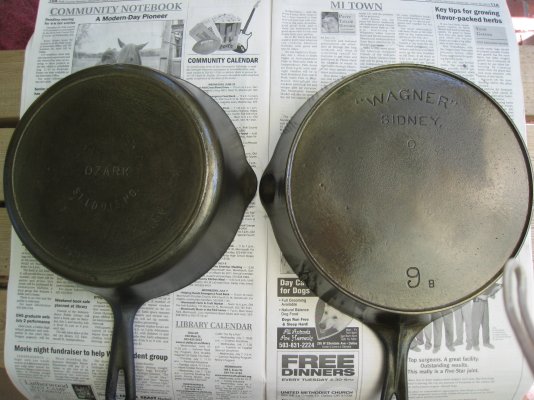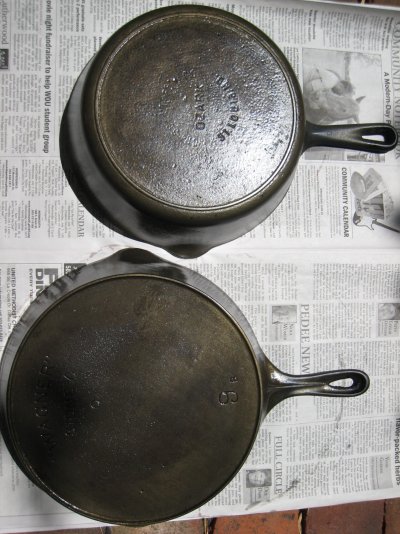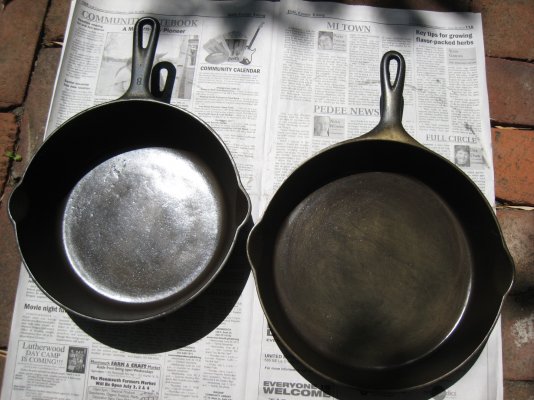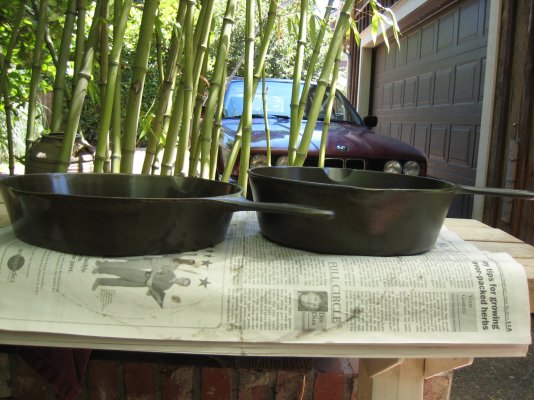ERD50
Give me a museum and I'll fill it. (Picasso) Give me a forum ...
I need to dig up the link I found after this was discussed a while back. It was a cooking forum and these people were INTENSE about seasoning their cast iron. The amazing thing to me was that I recall three separate posters that each claimed their pans were remarkably stick-free. They seemed very well informed and gave the details of their process. Their processes were all different, so I assume there are many ways to achieve a good result. But what was amazing was that each of them said "NEVER do X,Y, or Z", and X Y Z was part of the other guys process that he claimed worked.
So I don't know.
I just had to strip-down and re-season a wok. DW had kept cooking stuff in there with a sugar-y marinade, and she had burnt layer on top of layer of sugar on there. It was a carbonized mess. I took the approach of very light layers of oil, heat it to smoking, then cover it and let it sit on low heat for 10 minutes, let cool, repeat. With the cover (I used a baking pan and some foil), very little smoke escapes. About 5 cycles and it looks pretty good, but have not cooked on it yet. First cooking will be with nice oily things to get it broken in.
-ERD50
So I don't know.
I just had to strip-down and re-season a wok. DW had kept cooking stuff in there with a sugar-y marinade, and she had burnt layer on top of layer of sugar on there. It was a carbonized mess. I took the approach of very light layers of oil, heat it to smoking, then cover it and let it sit on low heat for 10 minutes, let cool, repeat. With the cover (I used a baking pan and some foil), very little smoke escapes. About 5 cycles and it looks pretty good, but have not cooked on it yet. First cooking will be with nice oily things to get it broken in.
-ERD50

 I was referring to the first quote..........but I was on page 1.......so it didn't make sense with the last post on page 2.
I was referring to the first quote..........but I was on page 1.......so it didn't make sense with the last post on page 2. 



